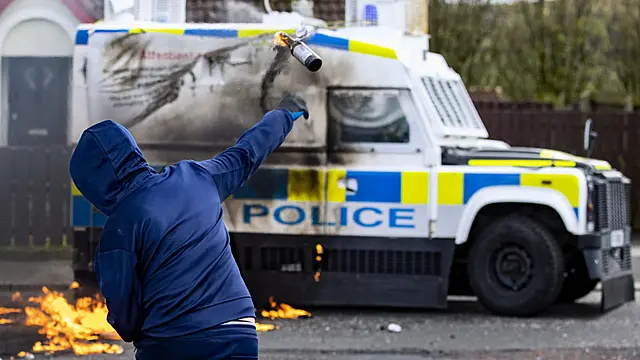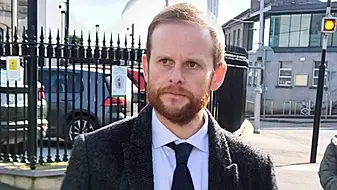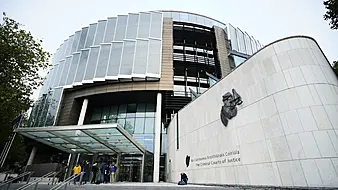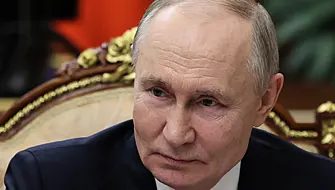A judge has rejected a police bid to secure media footage linked to disorder in Derry in a judgment that has been hailed as a “significant victory for press freedom”.
The Police Service of Northern Ireland had sought a production order for published and unpublished videos and photographs taken by various news outlets in Derry in April 2023.
The footage related to scenes captured at a dissident republican Easter commemoration in Derry’s City Cemetery. Rioting broke out outside the cemetery on the day and four viable pipe bombs were found in the grounds of the cemetery the following day.
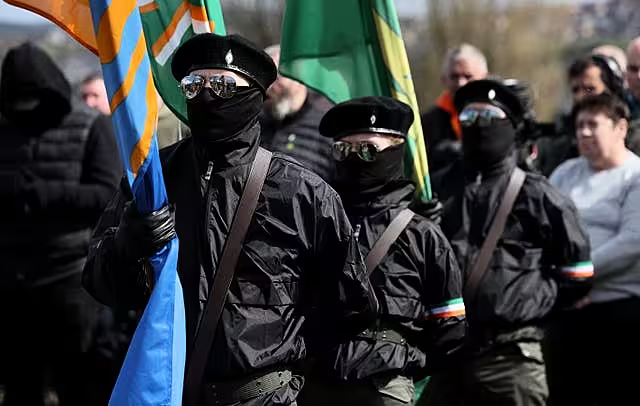
The PSNI had pursued the application under the terms of the UK's Terrorism Act, arguing that the footage could assist its ongoing investigation into the events around the commemoration and the discovery of the pipe bombs
The bid was resisted by several media organisations, including PA Media, BBC NI, UTV, ITV News and Channel 4 News.
They argued that the public perception of media impartiality and independence is critical when news-gathering teams are operating on the ground during public order scenarios.
The outlets contended that if their team members were seen as potential evidence gatherers for the police, this would not only jeopardise their ability to operate in such situations but would also increase the risk to the safety of journalists, camera people and photographers on the ground.
The organisations claimed that granting the order would result in a “chilling effect” on the ability and willingness of the media to cover such events in the future.
In a ruling delivered in Belfast on Monday, judge Gordon Kerr KC refused the PSNI’s application.
He said the police had failed to meet the initial threshold for securing such material – namely, that there are reasonable grounds for believing it would “likely to be of substantial value” to a terror investigation.
The judge referred to a police detective who, under cross-examination during the case, acknowledged that he did not know what was in the unpublished footage captured by the media.
Judge Kerr found that this failed to meet the threshold of establishing that the material was “likely” to be of substantial value.
Solicitor Olivia O’Kane of DWF (NI), representing PA Media, UTV, ITV News and Channel 4 News, said: “My clients welcome this significant decision, which underlines the importance of protecting the fundamental principles of press freedom, in particular the necessity for media outlets to be able to cover events of serious public interest both independently and impartially.”
A BBC spokesperson added: “The BBC is pleased with the outcome of today’s decision which recognises the important protections in law given to journalists reporting on matters of significant public interest.”

The National Union of Journalists also welcomed the ruling.
Seamus Dooley, assistant general secretary at the NUJ, said: “This is a significant victory for press freedom in Northern Ireland. It reaffirms the principle that the PSNI is not entitled to embark on ‘fishing expeditions’ to secure media footage.”
Mr Dooley said media organisations needed to be “robust” in opposing such orders and congratulated the organisations involved for “taking a firm stand in defending journalistic material”.
“The growing tendency of the PSNI and An Garda Síochána to seek footage from photographers, agencies and broadcasters has serious implications for the practice of journalism,” he said.
“Journalists covering protests, demonstrations and public order incidents are independent observers.
“If they are perceived to be agents of the State that independence is undermined and individual journalists are put at additional risk of attack from hostile groups.
“Today’s ruling sets a headline and is therefore a very welcome development not just for those involved but for the practice of journalism in democracy.”
A spokesperson for the PSNI said: “The Police Service of Northern Ireland will take time to fully consider the judgment.
“It would, therefore, be inappropriate to comment further at this time.”
